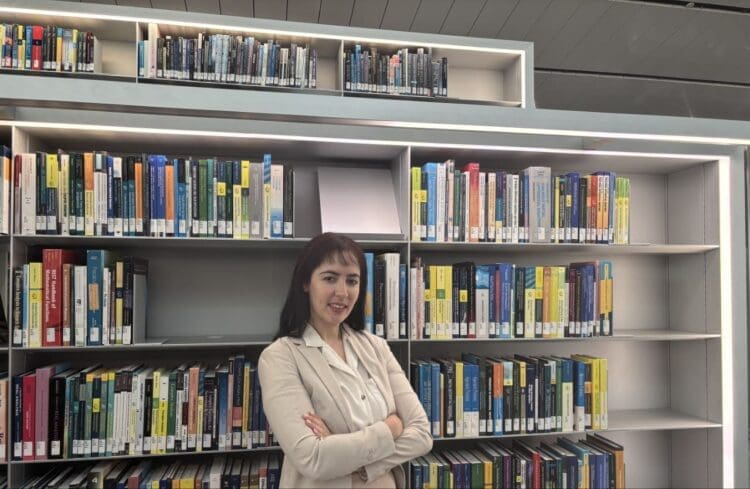Sarah Fluzin explains how traditional energy companies can avoid costly mistakes during the $670 billion investment shift toward renewables
Global energy investment will reach a record $3.3 trillion in 2025, with clean energy spending hitting $2.2 trillion – more than double the $1.1 trillion projected for oil and gas, according to the International Energy Agency’s latest World Energy Investment report. This marks the first time clean energy investments significantly outpace fossil fuel spending. Solar power alone will attract $450 billion in investment, making it the single largest category. Meanwhile, upstream oil investment faces its first decline since the COVID crisis, dropping 6% due to lower prices and weakening demand expectations.
Major oil companies are responding with dramatic strategic shifts. Recent industry moves show the variety of paths being chosen: some companies are doubling down on traditional operations, other companies divest hydrocarbons assets to invest heavily in renewables, while others retreat from renewable commitments they made just years ago. Against this backdrop of industry uncertainty, Sarah Fluzin, a management consultant with deep energy sector expertise, recently completed a transformation project that will save a major oil company several billion dollars by 2030. The project focused on identifying operational inefficiencies that had accumulated over decades. Sarah’s team analyzed everything from maintenance schedules to supply chain logistics, finding that many processes were designed for favourable and steady market conditions. More than a decade in the energy industry across the value chain and in companies such as ExxonMobil gave her insight into how energy companies operate – understanding which systems are critical and which create unnecessary bottlenecks. This operational knowledge proved crucial when designing changes that wouldn’t disrupt production.
Multi-Billion Dollar Project
The upstream transformation required a complete redesign of operational models across several business units. For one of the largest Energy players worldwide, Sarah led analyst teams for nine months, identifying bottlenecks and inefficiencies accumulated over decades. The project included an analysis of over 200 operational processes and an efficiency assessment of 20+ major production assets.
“We looked at everything from people and productivity to technology in operations and maintenance”, Sarah explains. “Many companies are still working in a way designed for oil at $100 per barrel while they would need to adapt to be profitable at $60 per barrel. The main savings generally come from productivity improvements, enabled by process optimization and technology”.
The savings target matches industry pressure to optimize operations.. Industry analysis shows companies increase focus on capital discipline and operational improvements to maintain profitability despite volatile oil prices.
Sarah’s approach goes beyond spreadsheet optimization. During her time at SBM Offshore, she led the development of an in-house application for managing offshore personnel. The system was needed because existing manual processes for tracking offshore workers certifications, shift schedules, and safety compliance were creating bottlenecks or potential safety risks during crew changes on offshore platforms.
Sarah developed a phased implementation plan that avoided operational disruptions during the digital transformation. Rather than implementing across all assets simultaneously, the team tested changes on two pilot facilities before scaling up.
Strategic Leadership Across Global Markets
Management consulting assignments took Sarah from Middle East to African private and public energy entities. One project involved helping a key GCC country develop a plan to hit ambitious renewable energy targets without hurting their oil-dependent economy. The challenge: how do you promise 50% renewable energy by 2030 when oil exports fund 80% of government spend?
“The key challenge facing oil companies today isn’t just optimizing current operations,” Sarah notes. “You need to build systems and capabilities that work across different price scenarios while preparing for long-term market shifts.”
Sarah’s work at AlixPartners, in the aeronautical sector acquisitions taught her to evaluate complex technical businesses quickly. When private equity firms consider buying aerospace companies, they need someone who can assess both the engineering capabilities and market positioning within weeks, not months.
One project involved due diligence for an aviation company with €800 million in revenue. Sarah analyzed strategy, operational and financial data, as well as market trends and competitor landscape. The work required understanding aviation regulatory requirements, manufacturing processes, and market dynamics – due diligence being a typical methodology that can be transposed to most industries, including the energy sector.
Having worked in multiple countries, gives Sarah insight into different business cultures. “In the Middle East, relationships have an important role to guarantee successful business partnership, then business,” she explains. “You could come up with a very sophisticated or efficient solution, but if you haven’t invested time in understanding local priorities and building trust with key stakeholders, the project might not reach the expected outcomes.”
The Gulf sustainability project took 18 months and required managing expectations from multiple entities. Sarah’s team had to balance ambitious environmental targets with realistic economic constraints. The final strategy included specific timelines, budget allocations, and performance metrics that satisfied both environmental advocates and economic planners.
From ExxonMobil to Management Consulting
Fifteen years in the Energy space gave Sarah a deep understanding of upstream and downstream operations before joining the consulting world. Her engineering degree provided technical foundations, while her MBA from HEC Paris added business strategy skills needed for senior consulting roles.
Sarah worked across the energy value chain, from Upstream to Downstream, the latter on refining operations and onshore mega projects.
The transition to digital project management proved crucial. Sarah led the development of SaaS solutions and offshore applications, learning how to bridge traditional energy operations with digital technology. This combination makes her effective at helping companies adopt new tools without disrupting critical operations.
Moving from operational roles to strategic consulting happened when Sarah saw the energy sector entering fundamental change. Companies needed advisors who understood both technical complexity and the business implications of transformation as well as the ability to contemplate innovative and inclusive business models, more aligned with environmental goals while leading on society major shifts such as AI.
“After 15 years in oil and gas, I felt I needed to renew myself and keep the learning going,” she explains. “I also assumed strict technical skills were not enough anymore. Companies needed people who could think strategically about business models, not just optimize existing processes. That’s why I decided to get an MBA – I needed to understand the businesses more holistically, think through new perspectives, understand how to think about transformations, prepare for the future versus solely applying skills to optimize operations and projects.”
Sarah managed operations teams of up to 50 engineers and coordinated brownfield projects worth several millions in capital expenditure. This experience with large-scale project management translates directly to her current consulting work, where she often leads transformation initiatives affecting thousands of employees.
Recognition and Market Impact
Sarah serves as a judge for Globee Awards, evaluating strategic excellence across different industries. This role positions her alongside other senior professionals who assess business transformation initiatives and innovative approaches to complex challenges.
A leading management consulting firm promoted Sarah to manager level after she demonstrated consistent results on complex projects. Top-tier consulting firms typically require 3-4 years of exceptional performance for such advancement. Sarah’s background in both energy industry and strategic consulting gives her an edge when helping companies navigate major changes.
Sustainability Focus
Sarah works on sustainability projects. She’s considering further academic studies in micro and nano-plastics – an area where she has strong interest.
Oil investment drops 6% this year, according to the IEA. Companies need to squeeze more profit from existing operations while preparing for an uncertain future. Sarah’s projects help them do both: optimize what they have now and build capabilities for whatever comes next.
Personal investments in environmental initiatives show Sarah understands where the industry is heading. Companies that ignore environmental requirements risk losing access to capital and markets in the coming years.
The sustainability work reflects broader industry recognition that environmental factors will increasingly drive business decisions. Sarah’s dual expertise in business optimization and sustainability strategy positions her uniquely for this evolving landscape.
Rebecca Ponton is the editor in chief at U.S. Energy Media and author of Breaking the Gas Ceiling: Women in the Offshore Oil and Gas Industry. She is the publisher of Books & Recovery digital magazine.






